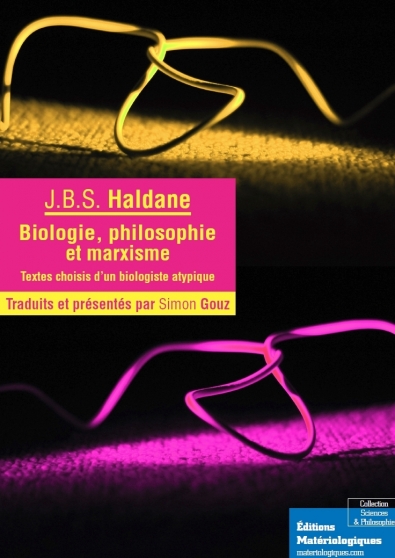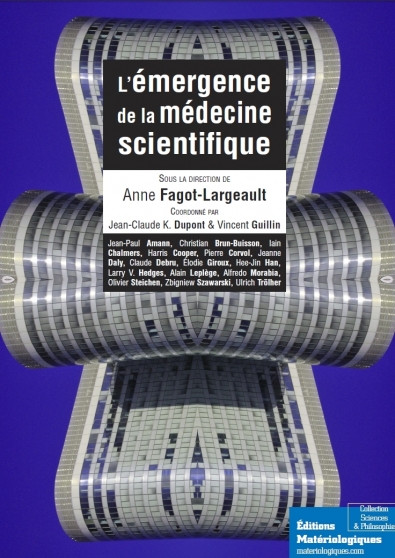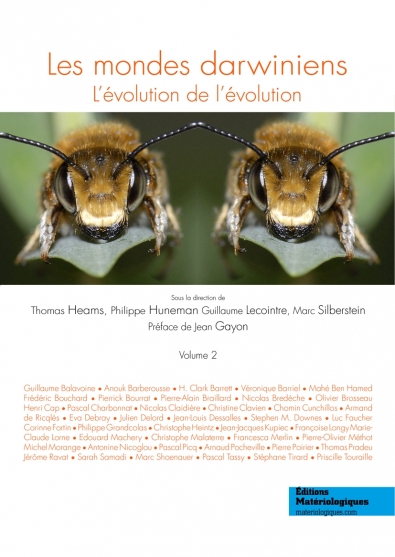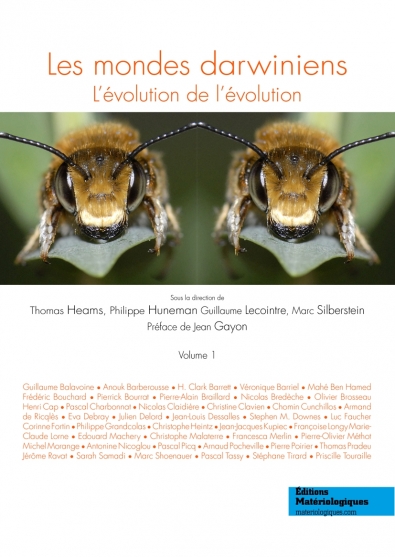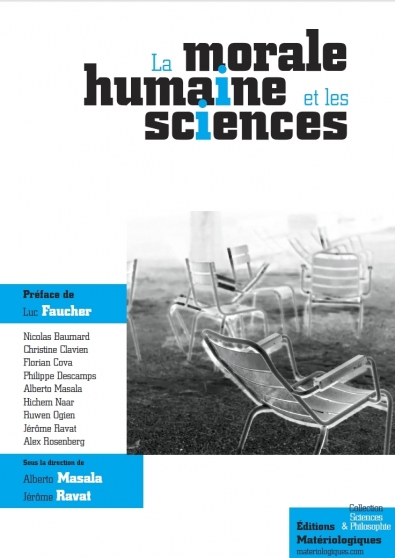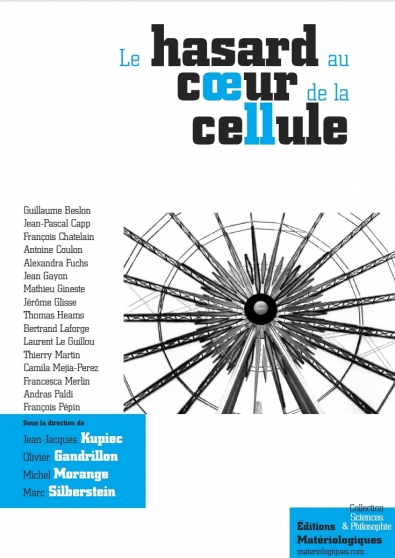No products
Prices are tax included
Product successfully added to your shopping cart
There are 0 items in your cart. There is 1 item in your cart.
News
Catalogue
Editors : Philippe Huneman (DR CNRS), Guillaume Lecointre (Pr MNHN) et Marc Silberstein (EM)
As the main collection of Editions Matériologiques, science & philosophy is based on a strong editorial expertise in the fields of science, philosophy of science and history of science, and a solid and long-standing network of scholars (epistemology, biology, physics, cognitive sciences, neurosciences, etc.). The aim is to propose several perspectives on science, scientific reasonings and their philosophical outcomes or consequences. In a framework both open to the diversity of scientific practices and watchful toward rigor, we aim to think about science beyond vague discourses, misuses, misconceptions and views of science forgetting how important they can be for a meaningful philosophy. The collection “science and philosophy” is therefore an area where philosophers and scientists will publish original research about epistemology and philosophy of science. Perspectives go from epistemological thinking on a given domain of scientific activity to the main general trend toward naturalization of objects of knowledge and the study of the links between sciences and materialism. Our aim is to propose a plurality of approaches within a materialist framework, open-minded but clearly endorsed.
Biologie, philosophie et marxisme
Textes choisis d’un biologiste atypiqueTextes de J.B.S. Haldane (traduits et présentés par Simon Gouz) Ce recueil vise à donner au lecteur francophone un accès à une partie de la réflexion du biologiste britannique John Burdon Sanderson Haldane (1892-1964) sur les sciences et leur rapport à la philosophie et à la politique. Haldane est surtout connu comme l’un des fondateurs (aux côtés de...
L’émergence de la médecine scientifique
Conçu dans une perspective historique longue, le développement de la médecine semble marqué par la coexistence en son sein d’une urgence à laquelle il faut répondre et d’un manque auquel il faut remédier. Cette urgence, c’est celle du soin à prodiguer à celui qui souffre, ici et maintenant, pour que justement cette souffrance cesse.
25,00 €La morale humaine et les sciences
Depuis Les Fondements naturels de l’éthique, datant de 1993 et dirigé par Jean-Pierre Changeux, aucun ouvrage collectif publié en France n’a présenté les travaux interdisciplinaires qui ont pour but, depuis plusieurs décennies, d’appliquer les connaissances scientifiques à la moralité humaine.
25,00 €Le hasard au cœur de la cellule
Probabilités, déterminisme, génétiqueUne révolution se produit actuellement en biologie. Les êtres vivants ne sont pas gouvernés par un programme génétique omnipotent. Il est maintenant clairement démontré que le hasard se niche au cœur des organismes, dans le fonctionnement des gènes et des cellules, et y joue un rôle encore largement sous-exploré.
24,00 €

